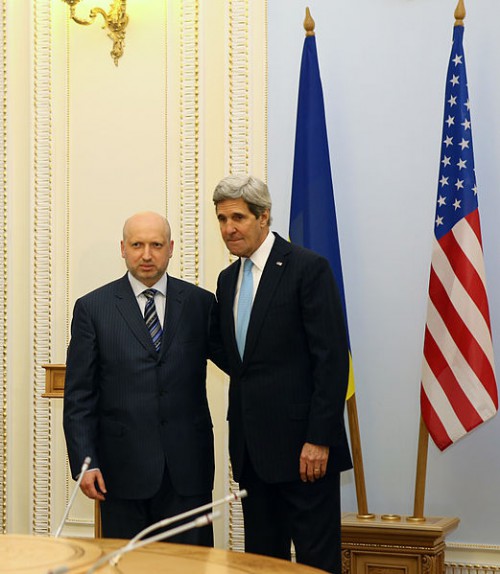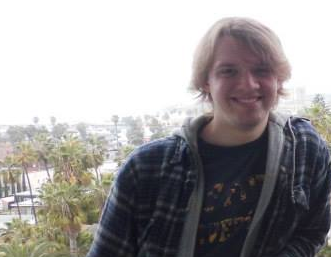Over the last several days, the worsening crisis in Ukraine has escalated rapidly. Inspired by the events in Crimea, pro-Russian militias and activists have seized control of government buildings in several cities across eastern Ukraine.
Until Tuesday, the Ukrainian government seemed to be taking little action. It has been stuck between a rock and a hard place; the dissenters have shown no interest in dialogue, yet a forceful response could invite an attack from thousands of Russian soldiers now stationed on the Ukrainian border, as well as damage the already fragile peace talks set to take place on Thursday between Russia, Ukraine, the U.S., and the EU.
That all changed on Tuesday when, 24 hours after a deadline for armed protestors to lay down their arms and not face prosecution, the Ukrainian military announced the commencement of an “anti-terror” operation to run the armed militias (whose ranks, according to some mostly Western sources, are bolstered by plainclothes Russian soldiers and operatives) out of occupied towns and buildings.
Although unverified reports of clashes between the militias and the security forces have been reported, so far the biggest fallout from the newest developments has been fear of a civil war, and an international debate over whether or not the Ukrainian government’s actions were justified.

(Photo courtesy of Wikimedia Commons)
There should be no question that the government has every right to launch this offensive. After sitting back and watching the annexation of Crimea, Ukraine’s fledgling government needs to prove to its people that it is committed to protecting them, holding the country together, and maintaining law and order. It must also prove to Russia that it will not sit idly by while Russian President Vladimir Putin dismantles its country, piece by piece. This especially rings true if the reports of Russian agents fighting alongside the militias are accurate.
The pretext of Crimea aside, the government must also prove it is committed to upholding democracy and the values that accompany a free system of government. These values include the right to assemble and protest, but peacefully. The second that the protestors, unprovoked, took up arms against the Ukrainian government, they gave up the rights of protection given to protestors in a democratic society.
Nothing is cut-and-dry, however, and the biggest flaw in the Ukrainian government’s strategy lies in its defined nature as an “anti-terror” operation. The terms “terrorism” and “terrorist” have adapted much looser meanings since the U.S. launched the War on Terror in 2001. Governments in Syria, Egypt, and other places around the world have labeled any and all forces in opposition to them terrorists in order to boost the legitimacy of their causes. There is no internationally agreed upon definition of the term “terrorism,” not even from the UN. This has allowed police state regimes to label even the most peaceful of dissenters as terrorists.
So far, no reports have surfaced from eastern Ukraine of the pro-Russian forces abusing civilians in any way. No stories of murder, harassment, rape, or robbery have come out. In this light, the Ukrainian government is entirely unjust in labelling these forces as terrorists. Are they criminals? Yes. But the term “terrorist” should only be applied to those who participate in the lowest, most cowardly acts of war; the murder, rape, robbery, and/or general abuse of civilians. What is most unfortunate about this specific instance is that the Ukrainian government does not even need to label the forces opposed to them as terrorists to legitimize their cause, yet for some reason they have chosen to do so anyways.
Politicians, analysts, and commentators against the military operation may refer to the largest conflict taking place on Earth today: the Syrian civil war. The U.S. government, along with many citizens, are sympathetic to the rebel cause. If they took up arms to overthrow their oppressive government, why is the U.S. scorning those doing the same in Ukraine?
For the U.S. government, the majority of the reasons most likely lay in its complex geopolitical rivalry with Russia. These tensions aside, many differences underline the conflicts. In Ukraine, protestors turned to violence because they wanted to. And even after that, they had a full 24 hours to lay down their arms without facing any consequences. In Syria, hundreds of peaceful protestors were attacked and shot dead by the military that was supposed to be protecting them. It should also be noted that many of these protestors were not even asking for regime change. In fact, many were carrying pictures of President Bashar al-Assad, and were simply pleading for the liberal reform promised at the beginning of his reign, now over a decade ago.
Ukraine’s system of government, although not perfect, has been democratic since the fall of the Soviet Union. Syria has suffered for decades under the authoritarian rule of the same family. Since the late 1960s, the Assad regime has ruled over a police state responsible for brutal tactics of oppression, including widespread use of torture. The same regime is also an ardent supporter of the terrorist group Hezbollah, and has engaged in rampant economic corruption that made their pockets and those of their allies fatter, while the people of Syria slid deeper and deeper into poverty.
In short, the Ukrainian dissenters have jumped the gun and overplayed their hand. Their requests for greater autonomy may have been heeded had they extended along with it an open hand instead of the barrel of a rifle. Critics of the operation must learn the old adage, “you reap what you sow.” Now that the pro-Russian protestors have sown the seeds of conflict, the rest of the world can only sit by and hope that it does not blossom into a full-blown war.







